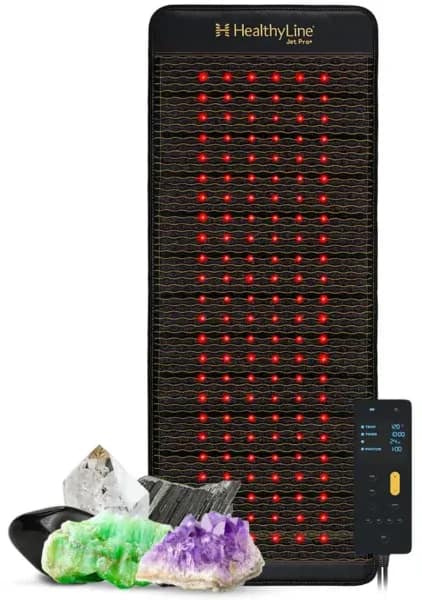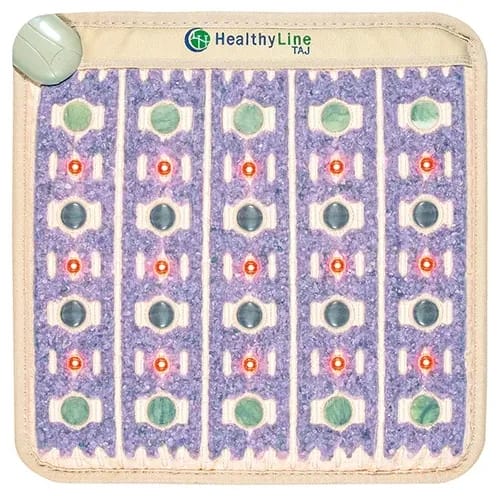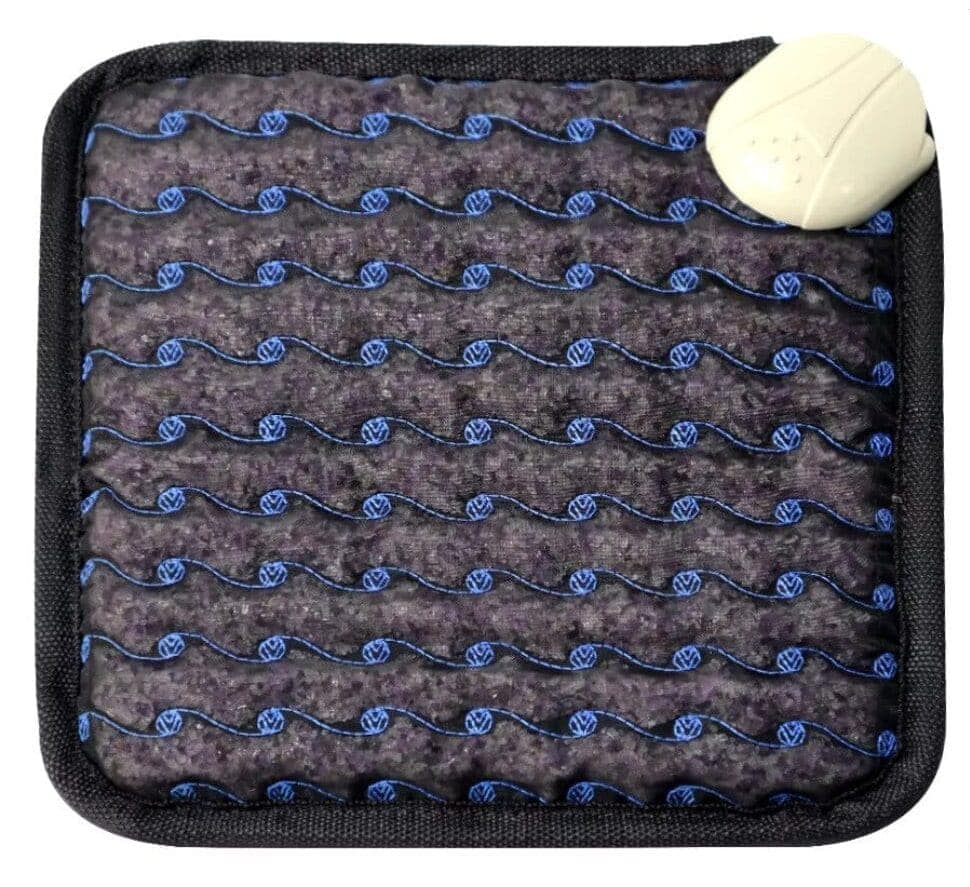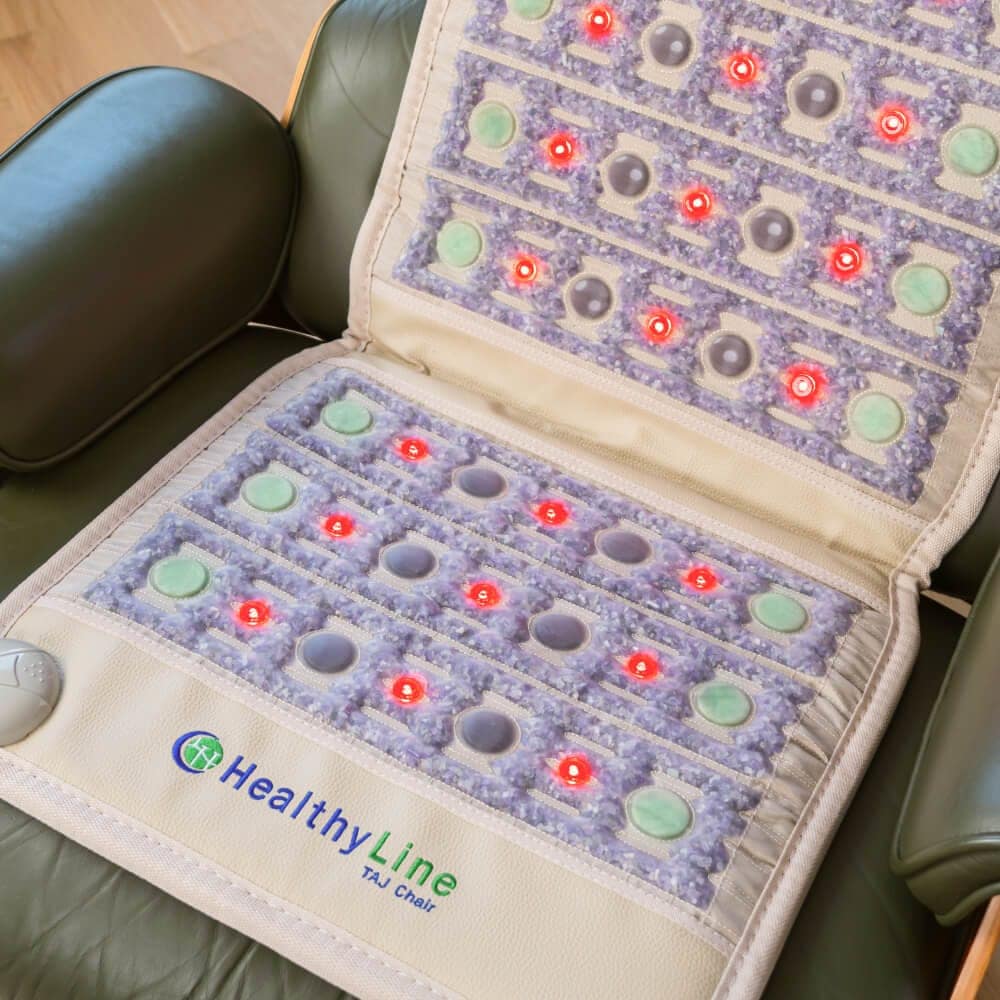PEMF for Muscle Repair: Complete Guide to Recover Faster

Welcome to my article on using PEMF for muscle recovery.
What if I told you that you could significantly shorten your muscle recovery time between training sessions?
My name is Marco Gentile, I’m a health coach and wellness expert with over 10 years of experience. Right now I work at the Burke SPA & Wellness Center in L.A., California.
Today, I’ll share my knowledge about PEMF for muscle recovery. This technology is changing how bodybuilders and fitness lovers heal their bodies after their workout.
Many professional athletes are now using PEMF therapy to speed up their recovery times between training sessions.
In this guide, I’ll break down everything you need to know, from the science behind PEMF to simple ways you can add it to your fitness routine. I’ll also share my insights on choosing the best PEMF device for muscle recovery so you don’t waste your money.
🔬PEMF for Muscle Recovery: The Science Behind
If you’ve ever dealt with muscle soreness after an intense workout or struggled with slow recovery times, you know how frustrating it can be.
When I first heard about Pulsed Electromagnetic Field (PEMF) therapy, I was skeptical.
Could electromagnetic pulses really help muscles recover faster?
After digging into the science behind the benefits of PEMF mats and trying it myself, I became a believer.
From my experience, using PEMF after a heavy leg day felt like a game-changer. Instead of waking up stiff and sore, I noticed a significant reduction in muscle tightness, almost like my recovery had been fast-forwarded overnight.
Also, PEMF can improve the quality of your sleep, which is one of the most important things when it comes to recovery after workouts.
Even NASA has researched PEMF technology for astronauts, as it helps counteract muscle and bone deterioration in space. That alone tells you how powerful it can be!
🩸Helping with Blood Flow and Inflammation

A 2024 article on Frontiers in Sports and Active Living found that PEMF may boost blood flow and enhance oxygen levels. The article also details the mechanisms behind these effects, noting that PEMF increases vessel diameter and promotes nitric oxide production, which leads to vasodilation.
It has also been found to reduce inflammation by helping regulate the body’s oxidative stress responses.
These are key factors for muscle repair.
🧬 “Recharging” Cells

Your body cells rely on electrical energy to function, and after an intense workout, they can become depleted.
As shown by a 2023 article published in the International Journal of Molecular Sciences, electromagnetic pulses penetrate deep into tissues and cells, enhancing cellular function and health. PEMF can also trigger modifications in the cellular environment, promoting the restoration of tissue integrity and function.
The study provides evidence that PEMF can enhance mitochondrial function and ATP production, which are critical for cellular energy and repair. While not a proper scientific term, we can say that PEMF can “recharge” the cells, restoring their natural ability to heal and regenerate.
😌 Reducing Muscle Soreness
When muscles are overworked, tiny tears form in the fibers, causing soreness.
Normally, the body repairs these tears through a natural inflammatory process, which can take time.
A 2015 randomized controlled trial published in Physical Therapy in Sports found that a 10-minute post-training PEMF session on the biceps improved DOMS (delayed-onset muscle soreness) symptoms in the following days, improving overall recovery quality.
This means that using PEMF regularly after workout sessions can significantly shorten the recovery times, and allow us to train again sooner than we’d normally be able to.
PEMF for Muscle Recovery – Summary Infographic

Key Differences Between PEMF and Other Recovery Methods
PEMF therapy differs from traditional recovery methods like massage, ice baths, and compression therapy because it works at a deeper cellular level. Here’s how it compares:
-
Massage therapy improves circulation and relieves tension, but it doesn’t directly impact cellular regeneration like PEMF may.
-
Ice baths may help reduce inflammation, but they also slow down blood flow, which can delay recovery.
-
Compression therapy may aid circulation but lacks the direct cellular stimulation that PEMF can provide.
One of the biggest advantages of PEMF is its ability to penetrate deep into muscle tissue without causing discomfort. While other methods focus on surface-level relief, PEMF targets the root cause of soreness and fatigue.
If you’re looking for a non-invasive, scientifically backed way to speed up recovery, PEMF therapy is worth exploring. Whether you’re an athlete, a fitness enthusiast, or someone dealing with chronic back pain or even arthritis, plantar fasciitis, or neuropathy, the potential benefits are hard to ignore.
🤖 Best PEMF Devices for Muscle Recovery
When it comes to muscle recovery, not all PEMF devices are created equal.
Choosing the right PEMF device comes down to your recovery goals. Whether you need deep, full-body restoration or quick relief for a specific muscle group, there’s a PEMF option that fits your lifestyle.
Let’s break down the options so you can choose what works best for your needs.
1. PEMF Mats

If you’re looking for whole-body muscle recovery, a full-body PEMF mat is the way to go.
These are ideal for athletes, fitness enthusiasts, or anyone dealing with widespread soreness after workouts. They are the easiest choice.
The only drawback is that mats are generally quite expensive. Also, they are bulky and A/C powered, so their portability is very limited. But if you plan on doing your post-workout PEMF session at home and not at the cafeteria or on the bus, they are just what you need.
If you’re considering a PEMF mat, don’t miss my deep dive into the 26 Best PEMF Mats of 2025. I’m confident you’ll find one that fits your needs. Here’s a quick look at the top 3 performers:

HealthyLine JET

OMI PEMF Beyond

Therasage TheraPro
2. PEMF Pads

Need to focus on a specific area, like tight hamstrings, a sore lower back, or overworked shoulders? A PEMF pad offers targeted relief where you need it most. These smaller, flexible devices deliver the treatment to specific areas, speeding up recovery without treating the entire body.
They are less expensive than mats and have much better portability (some of them have internal rechargeable batteries).
Unfortunately, they are less practical in some cases due to their limited coverage. In fact, it can be hard to use them on some parts of the body, like the chest, and they might be too small to cover other parts, like the legs.
If you’re considering a PEMF pad, just check my article on the best PEMF pads of 2025. It will help you to find the one that best suits your needs.
Here are my top 3 PEMF pads you can use for muscle repair and recovery:

HealthyLine TAJ Pad

OmniPEMF NeoRhythm

ApeBorn Fitness PEMF Infrared Mat
3. PEMF Chair Mats

Chair mats are similar to standard PEMF mats but with a key advantage—they’re specifically designed for sitting.
Whether you’re working at your desk, reading, or unwinding in front of the TV, these mats fit effortlessly into your daily routine, allowing you to enjoy PEMF therapy without disrupting your schedule.
If you want to support muscle recovery while seated for long hours, a chair mat could be the perfect addition to your wellness routine.
Interested in PEMF chair mats? Check out my guide to the 7 best PEMF chair mats! I’m sure you’ll find the right one for you!
Here are my top 3 picks for PEMF chair mats to help speed up muscle recovery:

HealthyLine JET Chair

HealthyLine Rainbow Chakra Chair

Grooni Earthing PEMF Infrared Mat Pro
4. Portable PEMF Wearables
If you want ongoing muscle support throughout the day, wearables like PEMF wraps or bands might be a good fit.
These are great for keeping muscles relaxed and promoting recovery while you move, but keep in mind that they have limited coverage.
If you have a PEMF band or a ring-shaped device, you will be able to target a specific area like no other device can.
The only problem is that you will have trouble targeting big muscles like the legs, and (unless you have a pair of the same device), you will need to treat each muscle one at a time.
Curious about PEMF wearables? Explore my buying guide on the best portable PEMF devices and wearables—I’m confident you’ll find the perfect fit for you!
Check out what I think are the 3 best PEMF wearable devices you should use to help your muscles recover faster:

OmniPEMF NeoRhythm

OMI PEMF PowerBand

Haelo
Features to Look For
Once you’ve decided on the type of PEMF device, it’s important to consider key features that directly impact muscle recovery.
Adjustable Intensity & Frequency Ranges
Most devices can reach a frequency of 30 Hz and an intensity of 2 Gauss, which is what you need, but getting a device that reaches 75 Hz of frequency can give you more options. However different muscles may need different frequencies and intensities, so try to avoid PEMF devices with a fixed frequency.
Having adjustable settings allows you to customize your recovery based on your needs.
Portability
If you are often on the move and need a flexible recovery option, consider a device that’s lightweight and battery-powered.
If portability is a priority, look for a device that includes a carry bag. Many models come with one at no extra cost, making it easier to store and transport your PEMF device wherever you go.
📅 How To Use PEMF For Muscle Recovery: My Weekly Schedule
In the last few years, I have experimented with different recovery methods, and adding PEMF therapy to my routine has helped a lot.
But like any powerful tool, it’s most effective when used correctly.
Are you new to PEMF? Let me quickly define frequency and intensity:
-
Frequency, measured in Hertz (Hz), refers to the number of electromagnetic pulses delivered per second by a PEMF device. In simple terms, it determines how fast the pulses occur.
-
Intensity represents the strength of the electromagnetic field emitted by the PEMF device. Most devices use Gauss (G) and MicroTesla (µT) in their user manual and controllers or phone apps. So I have included both in the table.
Through plenty of trial and error (and yes, some initial mistakes), I’ve figured out how to maximize the benefits of PEMF for post-workout recovery.
Based on the research, the following weekly plan incorporates optimal frequencies, intensities, session durations, rest days, and additional considerations for muscle recovery.
| Day | Sessions/Day | Frequency | Intensity | Duration | Additional Notes |
|---|---|---|---|---|---|
| Monday | 1 | 30 Hz | 0.5 G 50 µT | 20 Min | Combine with light stretching exercises. |
| Tuesday | 1 | 10 Hz | 0.3 G 30 µT | 15 Min | Focus on sore muscle groups. |
| Wednesday | Rest | – | – | – | Allow natural recovery. |
| Thursday | 1 | 30 Hz | 0.7 G 70 µT | 25 Min | Use after moderate physical activity. |
| Friday | 1 | 30 Hz | 0.5 G 50 µT | 20 Min | Combine with foam rolling for deeper muscle relaxation. |
| Saturday | Rest | – | – | – | Focus on hydration and nutrition. |
| Sunday | 2 (Morning + Evening) | Morning: 10 Hz Evening: 50 Hz | Morning: 0.3G/30µT Evening: 1G/100µT | Morning: 15 Min Evening: 30 Min | Use the evening session for deeper recovery after a week of activity. |
💪 PEMF Chart Table by Muscle Group
If you need a more targeted plan based on muscle groups, this table outlines PEMF settings tailored to specific muscles, helping you optimize recovery after a workout. These recommendations are backed by research to enhance effectiveness.
| Muscle Group | Frequency (Hz) | Intensity (Gauss/µT) | Duration (Minutes) |
|---|---|---|---|
| Quadriceps | 30 | 0.5 Gauss / 50 µT | 20 |
| Hamstrings | 50 | 0.7 Gauss / 70 µT | 25 |
| Biceps | 10 | 0.3 Gauss / 30 µT | 15 |
| Triceps | 75 | 1 Gauss / 100 µT | 30 |
| Calves | 30 | 0.5 Gauss / 50 µT | 20 |
| Lower Back | 50 | 0.7 Gauss / 70 µT | 25 |
Additional Guidelines
-
Add some light stretching or foam rolling before or after your PEMF sessions to enhance the benefits.
-
Focus on a high-protein diet, and include anti-inflammatory foods like omega-3-rich fish, nuts, and leafy greens.
-
Don’t forget to drink plenty of water to keep your cells hydrated and ready for repair during your PEMF therapy sessions.
-
Keep track of your recovery by checking in with yourself each week.
-
If you’re feeling any discomfort, consider adjusting the intensity or frequency of your sessions.
PEMF for Muscle Recovery: The Bottom Line
PEMF therapy is an exciting breakthrough in muscle recovery. It uses electromagnetic fields to cut recovery time, reduce soreness, decrease stress levels, and help you return to training faster than traditional methods.
Keep in mind that while PEMF is beneficial, it works best as part of a complete recovery plan. This plan should include good nutrition, enough sleep, and effective active recovery techniques.
The future of muscle recovery is here, and PEMF therapy is at the forefront. Whether you’re a pro athlete, a fitness enthusiast, or someone who wants to recover quickly from workouts, this innovative therapy should be in your wellness toolkit.
🙋FAQs
PEMF therapy is considered safe for most people, but certain precautions are essential. Individuals with pacemakers, insulin pumps, or other implanted medical devices, as well as those who are pregnant, should avoid using PEMF due to potential risks.
For a more detailed look at PEMF safety guidelines, contraindications, and possible side effects, check out our in-depth guide.
PEMF therapy is effective for both chronic muscle soreness and acute injuries. Regular sessions may help improve blood circulation, reduce stiffness, and enhance long-term muscle health and athletic recovery. It can also help with bone healing and osteoporosis.
Yes, PEMF therapy works for dogs when used properly. Check with your veterinarian first and use dog-appropriate devices. Many dogs experience improved mobility and comfort from these treatments.
🔬Scientific Evidence

ABOUT THE AUTHOR
Marco Gentile
Marco Gentile (CHC, CMT, CTP, CETS) is a seasoned wellness professional with over 10 years of experience helping clients achieve optimal health and longevity. Currently, he works at the Burke Williams SPA & Wellness Center in Los Angeles, where he continues to inspire and support individuals on their wellness journeys.








